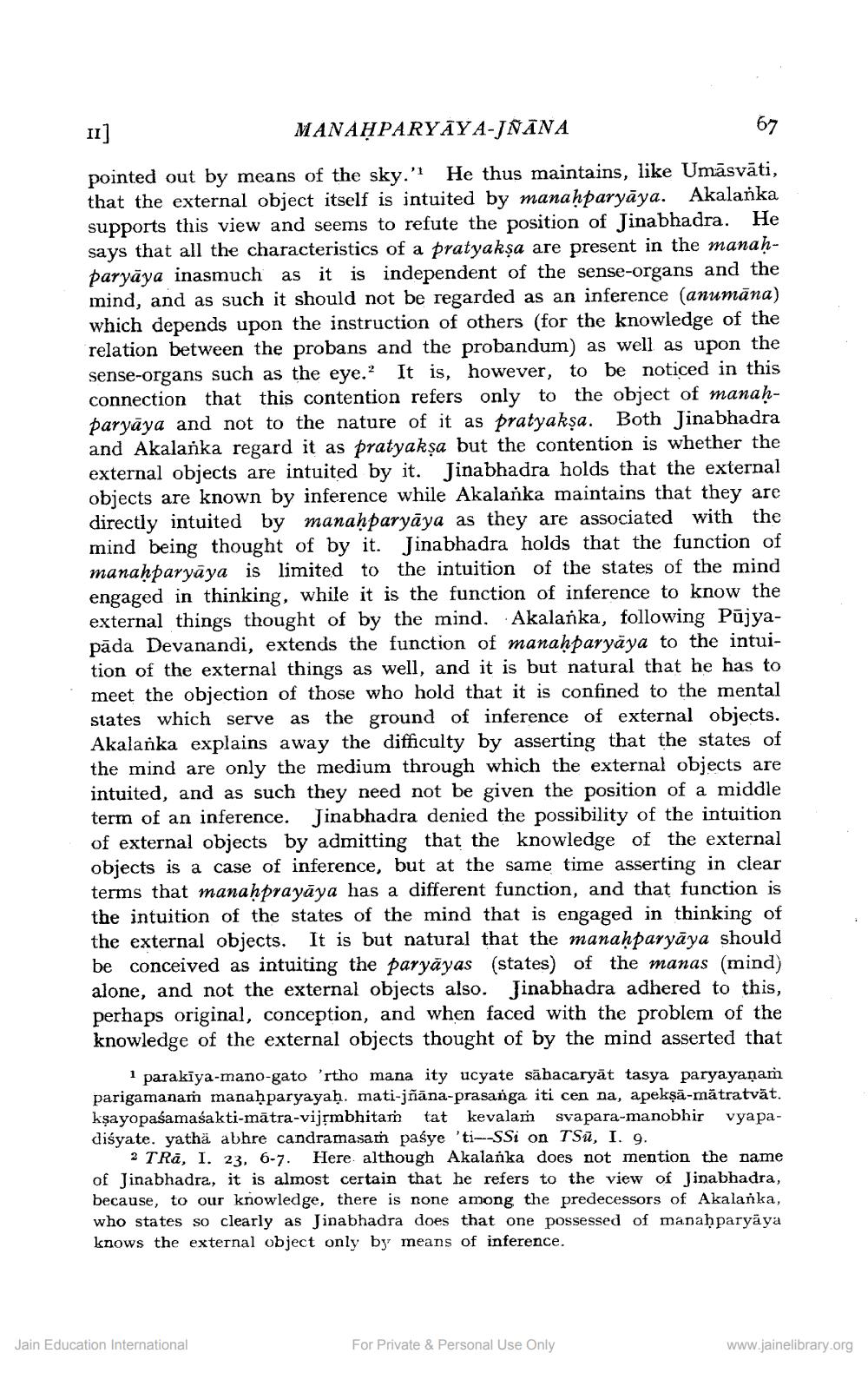________________
11]
MANAHPARYAY A-JÑANA
pointed out by means of the sky.' He thus maintains, like Umāsvāti, that the external object itself is intuited by manahparyāya. Akalanka supports this view and seems to refute the position of Jinabhadra. He says that all the characteristics of a pratyaksa are present in the manahparyāya inasmuch as it is independent of the sense-organs and the mind, and as such it should not be regarded as an inference (anumāna) which depends upon the instruction of others (for the knowledge of the relation between the probans and the probandum) as well as upon the sense-organs such as the eye. It is, however, to be noticed in this connection that this contention refers only to the object of manahparyāya and not to the nature of it as pratyakşa. Both Jinabhadra and Akalanka regard it as pratyaksa but the contention is whether the external objects are intuited by it. Jinabhadra holds that the external objects are known by inference while Akalanka maintains that they are directly intuited by manahparyāya as they are associated with the mind being thought of by it. Jinabhadra holds that the function of manahparyāya is limited to the intuition of the states of the mind engaged in thinking, while it is the function of inference to know the external things thought of by the mind. Akalarka, following Pūjyapāda Devanandi, extends the function of manahparyaya to the intuition of the external things as well, and it is but natural that he has to meet the objection of those who hold that it is confined to the mental states which serve as the ground of inference of external objects. Akalanka explains away the difficulty by asserting that the states of the mind are only the medium through which the external objects are intuited, and as such they need not be given the position of a middle term of an inference. Jinabhadra denied the possibility of the intuition of external objects by admitting that the knowledge of the external objects is a case of inference, but at the same time asserting in clear terms that manahprayāya has a different function, and that function is the intuition of the states of the mind that is engaged in thinking of the external objects. It is but natural that the manahparyāya should be conceived as intuiting the paryayas (states) of the manas (mind) alone, and not the external objects also. Jinabhadra adhered to this, perhaps original, conception, and when faced with the problem of the knowledge of the external objects thought of by the mind asserted that
1 parakīya-mano-gato 'rtho mana ity ucyate säbacaryät tasya paryayanam parigamanari manaḥparyayaḥ. mati-jñāna-prasanga iti cen na, apekšā-mătratvāt. kşayopaśamasakti-mātra-vijțmbhitam tat kevalaṁ sva para-manobhir vyapadiśyate. yathä abhre candrarnasath paśye 'ti--SSi on TSü, I. 9.
2 TRā, I. 23, 6-7. Here although Akalanka does not mention the name of Jinabhadra, it is almost certain that he refers to the view of Jinabhadra, because, to our knowledge, there is none among the predecessors of Akalanka, who states so clearly as Jinabhadra does that one possessed of manahparyaya knows the external object only by means of inference.
Jain Education International
For Private & Personal Use Only
www.jainelibrary.org




